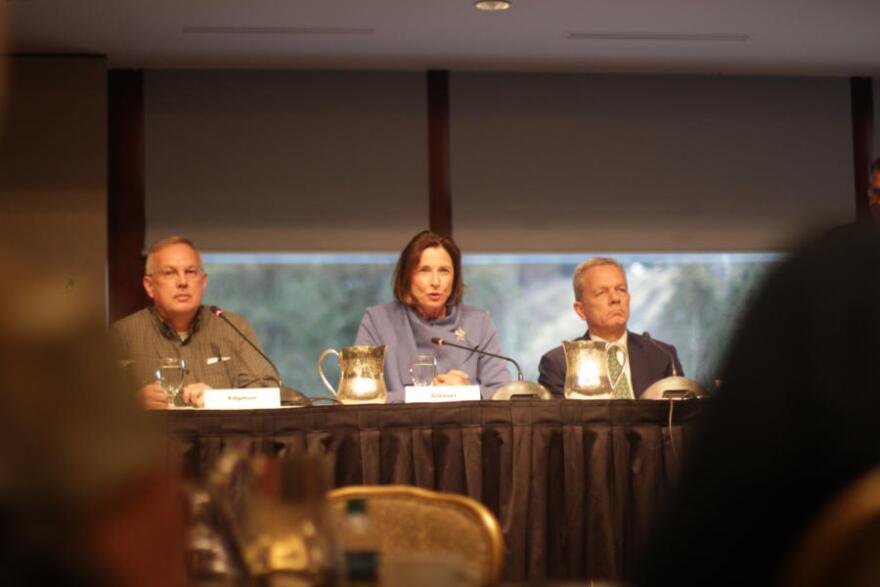Gov. Mike Dunleavy’s chief of staff and the two top legislative leaders traded letters on Friday over whether the Legislature should call itself into a special session to extend Alaska’s public health emergency disaster declaration.
A law passed in March extended the governor’s original declaration until Nov. 15. Health care and municipal organizations recently urged another extension, saying the declaration is needed to allow them to better respond to the pandemic.
Dunleavy’s Chief of Staff Ben Stevens wrote Senate President Cathy Giessel, an Anchorage Republican, and House Speaker Bryce Edgmon, a Dillingham independent, asking whether they’ve polled legislators over whether they want to convene a special session.
Under state law, two thirds of the Legislature — or 40 members — must agree for the body to call itself into a special session.
Stevens asked for them to respond by Wednesday if the Legislature “intends to convene itself in Special Session to extend the emergency declaration or let it expire.”
Stevens’ letter noted that Dunleavy originally asked in March for the Legislature to extend the declaration until March 12, 2021, and the Legislature shortened the time period.
Giessel and Edgmon responded with a joint letter to Dunleavy. They wrote that it’s “good to hear that the pending expiration of the Disaster Declaration has been on your mind. It has been deeply concerning to us as well.”
They wrote that given Dunleavy’s interest, they would be happy to poll the Legislature with the clear goal of reaching the required number of votes.
“However, as you are aware, it will take your assistance to achieve the necessary threshold for the legislature to call itself into special session,” they wrote.
They wrote that if there aren’t enough votes, they’re interested in discussing with Dunleavy other ways to address legal provisions that are about to expire.
After Dunleavy received the letter from the leaders, Stevens released a statement, saying only the Legislature can extend the law. If the Legislature doesn’t call itself into a special session, Stevens said the governor had two options to consider: “Call an immediate special session or allow (the law) to expire and issue a new declaration.”
Stevens noted the dramatic increase in COVID-19 cases statewide and said Dunleavy “is rightfully concerned that even a brief special session in Juneau could pose an unacceptable risk to lawmakers, their communities, legislative staff and Juneau residents.”
A key group in deciding whether to hold a special session is the Republican House minority caucus. Of the four legislative caucus, it has been the most closely aligned with the governor. And its 15 members include some who oppose extending the declaration.
Minority Leader Rep. Lance Pruitt said in a phone interview on Friday that he is disinclined to support a special session. He’s particularly concerned that legislators would want to add items in a special session, including items that his caucus and the governor wouldn’t support.
But Pruitt said he’s open to discussing a special session if it has a limited agenda. He added that Dunleavy could take action separately to address some of the concerns raised by health care and other groups.

